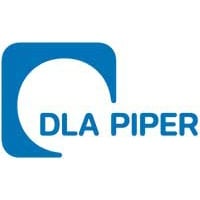
Australia: Rising Stars 2019

Corporate lawyer | CBH Group



Sarah Croft
Corporate lawyer | CBH Group
Sarah Croft began her career at King & Wood Mallesons in Melbourne in 2009 (then Mallesons Stephen Jaques). After three years at KWM, she relocated to Perth and joined Clayton Utz, where she worked until joining CBH Group in 2014. While in private practice, she was an M&A lawyer with a strong focus on energy and resources transactions and projects. From 2010 to 2011, much of her time was spent working on the QCLNG project in Queensland (acting for QGC, an Australian subsidiary of British Gas). In Western Australia, she worked on the establishment of the joint venture between Yara, Orica and Apache to build and operate an ammonium nitrate plant on the Burrup Peninsula (acting for Yara, as the plant’s operator). Her recent transactional highlights include CBH Group’s acquisition of Blue Lake Milling, an oats business in South Australia, the construction of an oat processing mill at CBH’s Metro Grain Centre in Forrestfield, WA (through BLM, post-acquisition), and establishing CBH Group’s new business operations in Krasnodar, Russia – involving grain accumulation and export subsidiary. Croft also leads on CBH Group’s industrial relations issues including negotiation and management of enterprise agreements across CBH’s grain port terminals and up-country receiver sites, and advises on construction projects to implement CBH’s network strategy. These include site upgrade and expansion to add more than 1.5 million tonnes of storage capacity to CBH’s network through over 20 projects. Croft was selected as one of only two women at CBH to represent the business at Deloitte’s 2018 Resourceful Women leadership programme, and demonstrates the attributes of a rising star within the in-house legal industry. Croft identifies the growing role of an in-house counsel and the need for in-house lawyers to take greater responsibility in advising businesses across the whole spectrum of legal issues facing the company. She explains that it is now the case – and will continue to be, even more so – that in-house counsel must be true generalists, adept at advising on all legal issues while having an in-depth commercial understanding of the business and macro and micro market forces. She highlights that ‘a close relationship of mentor/mentee between general counsel and members of their legal team is fundamental to see “rising stars” develop into legal industry leaders. The transition from private practice to in-house can sometimes be difficult, but having a direct manager who invests themselves in their staff is critical. More broadly, having informal mentoring relationships with senior management in the business who I look to as role models, and developing networks amongst sector peers through programmes such as Deloitte’s Resourceful Women leadership programme, has been invaluable. More broadly, as leaders in the business, general counsels should look to lead by example to positively influence an organisational culture which is built on core values such as integrity, respect, diversity, and safety’.